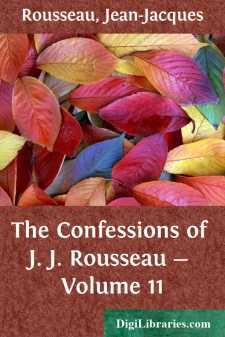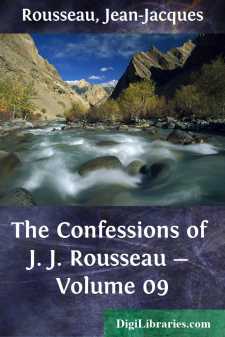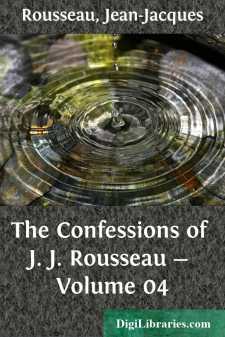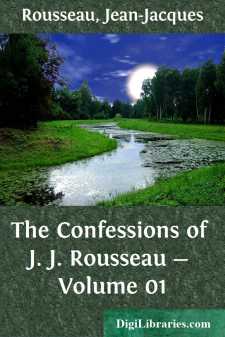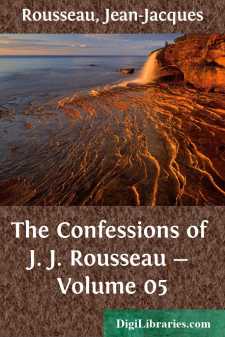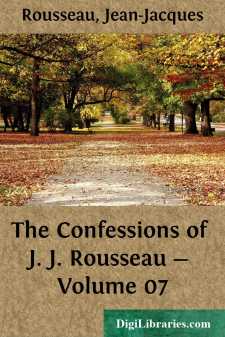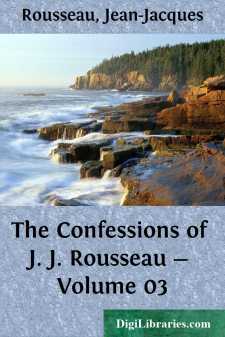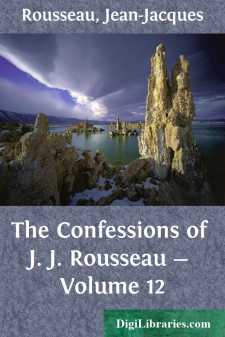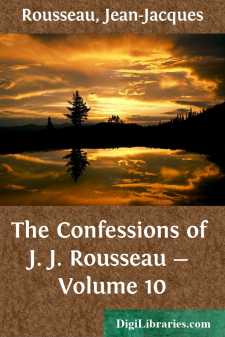Categories
- Antiques & Collectibles 13
- Architecture 36
- Art 48
- Bibles 22
- Biography & Autobiography 813
- Body, Mind & Spirit 142
- Business & Economics 28
- Children's Books 17
- Children's Fiction 14
- Computers 4
- Cooking 94
- Crafts & Hobbies 4
- Drama 346
- Education 46
- Family & Relationships 57
- Fiction 11829
- Games 19
- Gardening 17
- Health & Fitness 34
- History 1377
- House & Home 1
- Humor 147
- Juvenile Fiction 1873
- Juvenile Nonfiction 202
- Language Arts & Disciplines 88
- Law 16
- Literary Collections 686
- Literary Criticism 179
- Mathematics 13
- Medical 41
- Music 40
- Nature 179
- Non-Classifiable 1768
- Performing Arts 7
- Periodicals 1453
- Philosophy 64
- Photography 2
- Poetry 896
- Political Science 203
- Psychology 42
- Reference 154
- Religion 513
- Science 126
- Self-Help 84
- Social Science 81
- Sports & Recreation 34
- Study Aids 3
- Technology & Engineering 59
- Transportation 23
- Travel 463
- True Crime 29
Jean-Jacques Rousseau
Jean-Jacques Rousseau was an 18th-century philosopher, writer, and composer whose ideas influenced the Enlightenment across Europe and the French Revolution. He is best known for his works "The Social Contract," which introduced concepts of popular sovereignty and political legitimacy, and "Emile, or On Education," which outlined his philosophy on the natural development of children. Rousseau's emphasis on individual freedom and critique of modern society's corrupting influence were foundational to modern political and educational thought.
Author's Books:
Sort by:
Although Eloisa, which for a long time had been in the press, did not yet, at the end of the year, 1760, appear, the work already began to make a great noise. Madam de Luxembourg had spoken of it at court, and Madam de Houdetot at Paris. The latter had obtained from me permission for Saint Lambert to read the manuscript to the King of Poland, who had been delighted with it. Duclos, to whom I had also...
more...
My impatience to inhabit the Hermitage not permitting me to wait until the return of fine weather, the moment my lodging was prepared I hastened to take possession of it, to the great amusement of the 'Coterie Holbachaque', which publicly predicted I should not be able to support solitude for three months, and that I should unsuccessfully return to Paris, and live there as they did. For my...
more...
Let any one judge my surprise and grief at not finding her on my arrival. I now felt regret at having abandoned M. le Maitre, and my uneasiness increased when I learned the misfortunes that had befallen him. His box of music, containing all his fortune, that precious box, preserved with so much care and fatigue, had been seized on at Lyons by means of Count Dortan, who had received information from the...
more...
INTRODUCTION. Among the notable books of later times-we may say, without exaggeration, of all time—must be reckoned The Confessions of Jean Jacques Rousseau. It deals with leading personages and transactions of a momentous epoch, when absolutism and feudalism were rallying for their last struggle against the modern spirit, chiefly represented by Voltaire, the Encyclopedists, and Rousseau himself—a...
more...
It was, I believe, in 1732, that I arrived at Chambery, as already related, and began my employment of registering land for the king. I was almost twenty-one, my mind well enough formed for my age, with respect to sense, but very deficient in point of judgment, and needing every instruction from those into whose hands I fell, to make me conduct myself with propriety; for a few years' experience...
more...
After two years' silence and patience, and notwithstanding my resolutions, I again take up my pen: Reader, suspend your judgment as to the reasons which force me to such a step: of these you can be no judge until you shall have read my book. My peaceful youth has been seen to pass away calmly and agreeably without any great disappointments or remarkable prosperity. This mediocrity was mostly owing...
more...
Leaving the service of Madam de Vercellis nearly as I had entered it, I returned to my former hostess, and remained there five or six weeks; during which time health, youth, and laziness, frequently rendered my temperament importunate. I was restless, absent, and thoughtful: I wept and sighed for a happiness I had no idea of, though at the same time highly sensible of some deficiency. This situation is...
more...
With this book begins the work of darkness, in which I have for the last eight years been enveloped, though it has not by any means been possible for me to penetrate the dreadful obscurity. In the abyss of evil into which I am plunged, I feel the blows reach me, without perceiving the hand by which they are directed or the means it employs. Shame and misfortune seem of themselves to fall upon me. When...
more...
The extraordinary degree of strength a momentary effervescence had given me to quit the Hermitage, left me the moment I was out of it. I was scarcely established in my new habitation before I frequently suffered from retentions, which were accompanied by a new complaint; that of a rupture, from which I had for some time, without knowing what it was, felt great inconvenience. I soon was reduced to the...
more...
A DISCOURSE UPON THE ORIGIN AND THE FOUNDATION OF THE INEQUALITY AMONG MANKIND 'Tis of man I am to speak; and the very question, in answer to which I am to speak of him, sufficiently informs me that I am going to speak to men; for to those alone, who are not afraid of honouring truth, it belongs to propose discussions of this kind. I shall therefore maintain with confidence the cause of mankind...
more...


